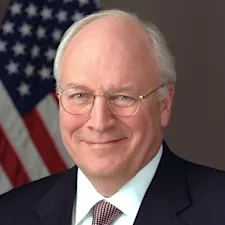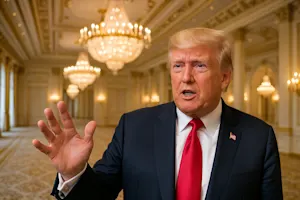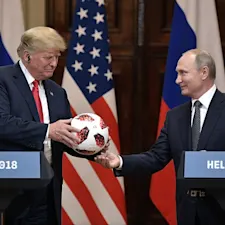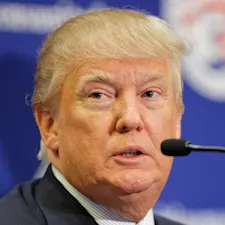
Trump Threatens Strikes, Mexico Draws a Red Line
Claudia Sheinbaum, 2020. Photo courtesy of the Mexico City Ministry of Culture under CC BY 2.0.
Could the U.S. soon be launching military strikes inside Mexico? The idea, once whispered in political backrooms, has now reportedly been thrown into the spotlight by President Donald Trump himself. But Mexico's top leader has delivered a response that leaves no room for doubt. What exactly did Mexican President Claudia Sheinbaum say, and how might this standoff reshape the fragile dance of security cooperation between the two neighbors? The answers reveal a clash of wills with high stakes for sovereignty and regional stability.
Mexican President Draws a Line in the Sand
When asked about Trump's proposal to authorize U.S. military strikes against drug cartels on Mexican soil, President Claudia Sheinbaum was blunt: "It's not going to happen," as reported by POLITICO. Her words echoed firmly during a recent press briefing, signaling Mexico's unwavering stance on protecting its sovereignty.
Sheinbaum explained that while Mexico welcomes collaboration and intelligence sharing with the U.S., any operations must be conducted exclusively by Mexican authorities within their own territory, as reported by POLITICO. She emphasized that this position has been clearly communicated to both Trump and U.S. Secretary of State Marco Rubio, who have acknowledged Mexico's red line.
Trump's Hardline Push
President Trump has made no secret of his willingness to escalate the fight against drug trafficking. Speaking from the Oval Office, he said he would be "OK" with launching strikes in Mexico if that was what it took to stop drugs from entering the U.S, as reported by NBC News. "Would I launch strikes in Mexico to stop drugs? OK with me, whatever we have to do to stop drugs," Trump said, adding that he has detailed knowledge of cartel leaders' locations and operations.
Despite this aggressive rhetoric, Trump reportedly declined to specify whether such strikes would require Mexico's permission, as reported by NBC News, leaving the door open to unilateral action. His administration has already conducted nearly two dozen strikes on narcotics-carrying vessels in the region, resulting in over 80 deaths, including Colombian nationals. Trump also expressed readiness to target cocaine factories in Colombia, and has not ruled out military action in Venezuela.
A Border Incident Highlights Tensions
Adding fuel to the fire, a recent incident near the U.S.-Mexico border underscored the delicate nature of bilateral relations. Contractors working for a U.S. government agency installed "Restricted Area" signs on a beach in northeastern Mexico near the mouth of the Rio Grande. The signs declared the area as the Department of Defense property and warned against unauthorized access.
Mexico's Navy promptly removed the signs after confirming they were placed on Mexican soil. The International Boundary and Water Commission, a binational agency responsible for defining the border, was called in to resolve the dispute. Sheinbaum noted that shifting riverbeds complicate the exact border location, contributing to the confusion, as reported by POLITICO.
The disputed area lies near SpaceX's Starbase launch site in Boca Chica, Texas, a facility under contract with NASA and the Pentagon. The incident highlighted the challenges of managing security and sovereignty in a region where geography and politics intersect.
Sovereignty Versus Security Cooperation
Sheinbaum's firm rejection of U.S. military strikes inside Mexico reflects a broader Mexican consensus that foreign military intervention is unacceptable, even as the country battles the violence and corruption fueled by drug cartels. Her insistence on Mexican control over operations within its borders underscores a nuanced approach to security cooperation — one that prioritizes sovereignty while acknowledging the shared threat posed by narcotics trafficking.
This stance may reassure Mexican citizens and officials wary of foreign intervention, while challenging the Trump administration to recalibrate its approach. The incident with the restricted area signs further illustrates the need for careful coordination and respect for territorial boundaries.
What Lies Ahead?
The exchange between Trump and Sheinbaum marks a critical moment in U.S.-Mexico relations. While the U.S. pushes for more aggressive measures, Mexico asserts its right to lead operations within its borders. This dynamic could shape the future of bilateral security cooperation, emphasizing intelligence sharing and joint efforts over unilateral military action.
For now, Mexico's message is clear: cooperation is welcome, but sovereignty is nonnegotiable. As both countries navigate the complex fight against drug cartels, balancing urgency with respect for national borders will remain a delicate challenge.
You can expect this tension to continue as the two neighbors seek common ground amid high stakes and deep-seated mistrust.
References: Mexican president rejects Trump's offer of military intervention against cartels | Mexico's Sheinbaum rejects Trump's military strikes against cartels | Trump says he would be 'OK' launching strikes in Mexico
























